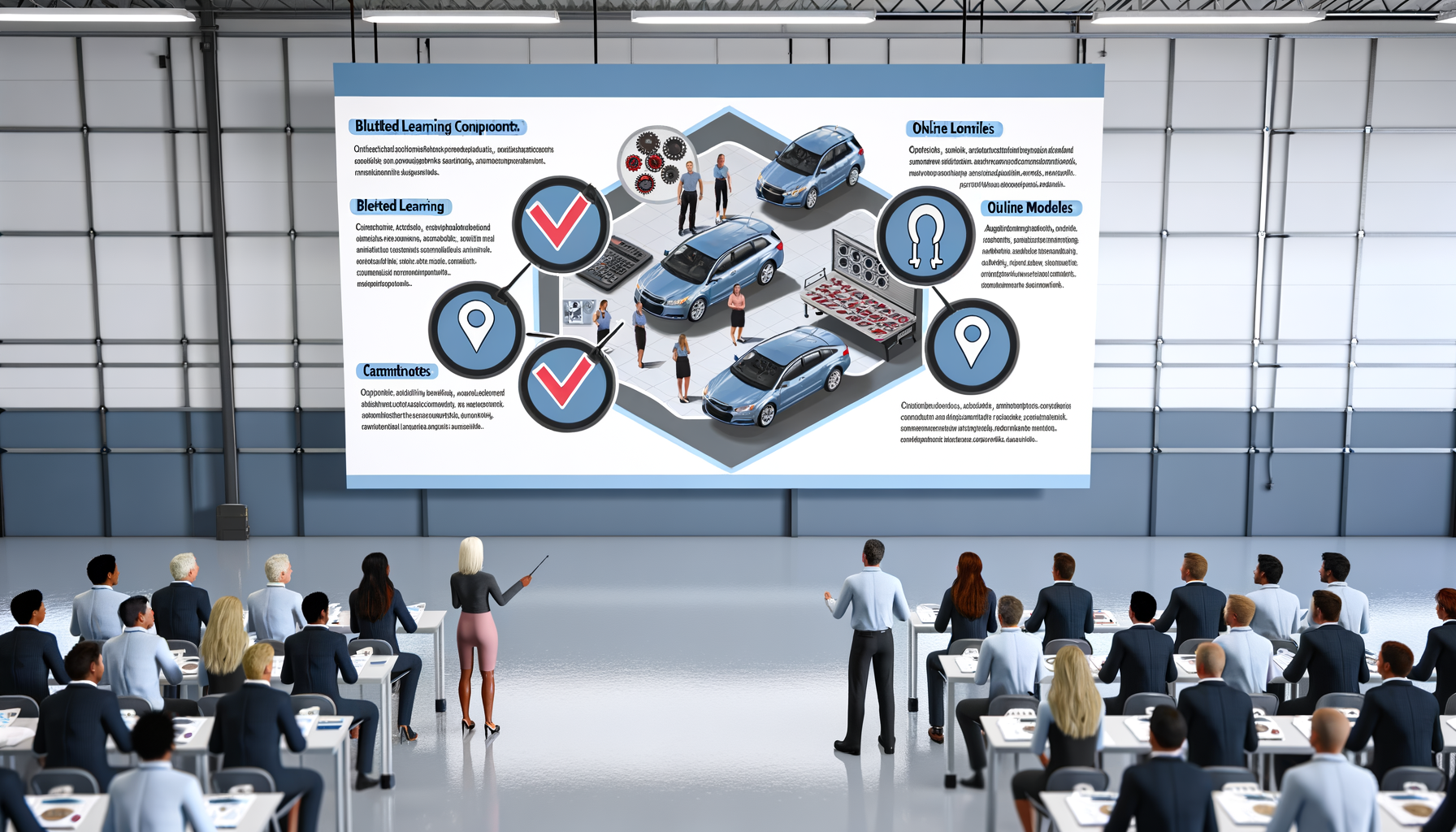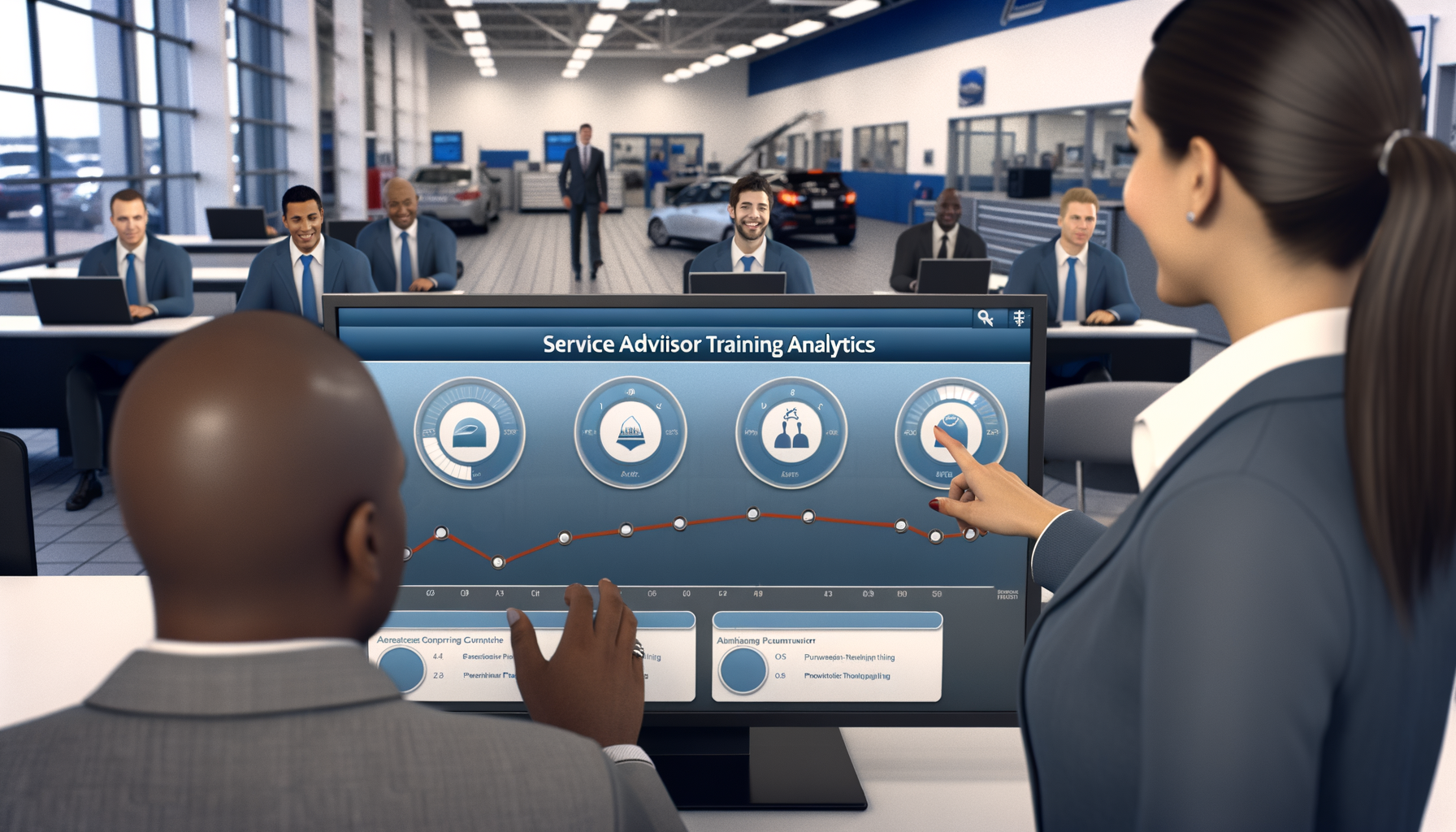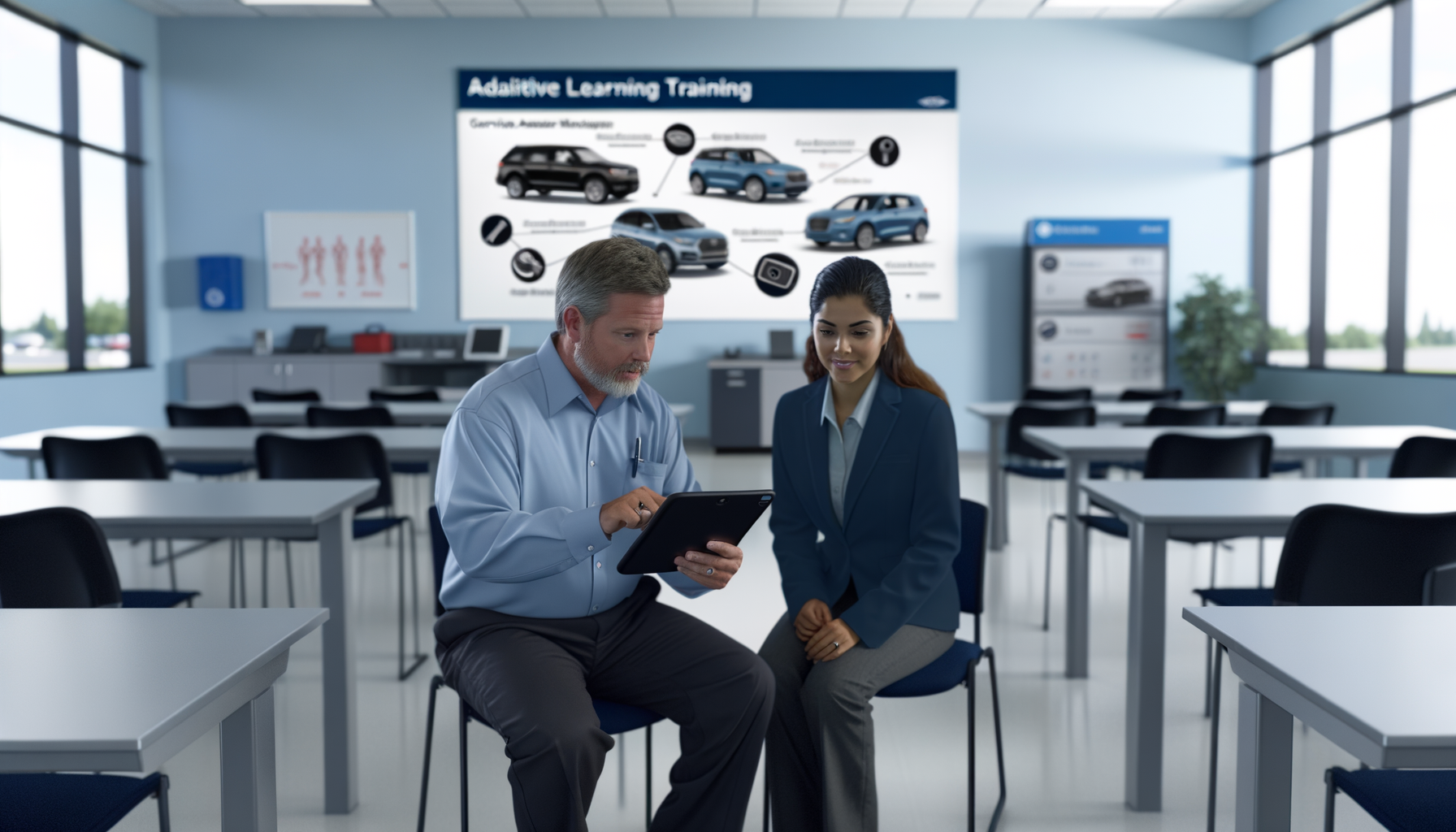Mastering the Service Symphony: Harmonizing Human Skills and Digital Tools

Understanding the Modern Service Advisor Role

Service advisors are the linchpin of the dealership service department, bridging the gap between customers and technicians. With 2025's industry trends showing a 15% increase in EV-related repairs, advisors must possess a nuanced understanding of both traditional and modern vehicle technologies.
To adapt, advisors require ongoing education in the latest automotive technologies, including OEM-specific certifications as new requirements emerge.
Step 1: Conduct a skills gap analysis to identify key areas where advisors need development. Step 2: Create a personalized learning path for each advisor, focusing on areas such as EV systems, digital communication tools, and advanced diagnostic technologies.
Building a Robust Training Program

Developing a structured training program involves integrating core competencies with dealership-specific objectives. Successful programs incorporate both theoretical knowledge and practical application.
Industry leaders recommend a blend of in-person workshops and digital modules, leveraging microlearning techniques to enhance retention.
Implementation Steps: Step 1: Define core competencies for service advisors. Step 2: Utilize mixed learning formats. Step 3: Schedule regular assessments to track progress.
Leveraging Technology for Training Efficiency

Incorporating technology in training improves efficiency and engagement. Tools like Auto Pro Solutions software can automate scheduling and track advisor progress using analytics.
A recent study shows that 68% of customers prefer digital service scheduling, highlighting the importance of training advisors in these technologies.
Practical Steps: Step 1: Implement training management software to streamline scheduling. Step 2: Use analytics to personalize training content based on performance data. Step 3: Regularly update training modules with the latest industry trends.
Developing Communication and Upselling Skills

Effective communication is paramount for service advisors. Training should encompass both verbal and non-verbal communication skills, focusing on building rapport and trust with customers.
Upselling is an art. Advisors should be trained to identify customer needs and offer value-driven solutions without coming across as sales-oriented.
Implementation Steps: Step 1: Conduct role-playing exercises to simulate customer interactions. Step 2: Provide scripts that blend upselling techniques with customer-centric language. Step 3: Review real interaction recordings for continuous improvement.
Measuring and Analyzing Training Effectiveness

Evaluating training effectiveness is crucial for continuous improvement. By quantifying the ROI of service advisor training, dealerships can justify ongoing investments in their workforce.
Key performance indicators might include customer satisfaction scores, upselling success rates, and service department profitability.
Step-by-step: Step 1: Establish KPIs that align with dealership objectives. Step 2: Collect data through customer feedback and performance metrics. Step 3: Analyze results to refine training programs.
Tackling Common Training Challenges

Common challenges in service advisor training include high turnover, varying skill levels, and resistance to change. Addressing these requires strategic planning and flexibility.
Industry trends indicate a need for adaptive learning platforms that cater to diverse learning styles and paces, especially with parts shortages impacting service operations.
Solutions: Step 1: Implement mentorship programs to support new advisors. Step 2: Use adaptive learning technology to cater to different skill levels. Step 3: Foster a culture of continuous learning and improvement.
Related Topics
Ready to take your service department to the next level?
Schedule your demo today and experience the power of Auto Pro Solutions.
Schedule Demo